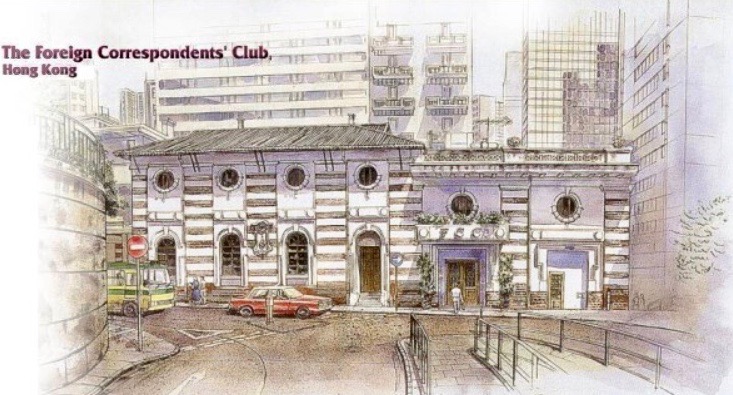TOM PLATE WRITES – Hong Kong is exceptional, of course. It is an object of desire worldwide — a known global gem, a gold-medal metropolis. It attracts not just business people but holiday seekers. It has glamor. It has an amazing film industry. It probably has more raging shopaholics per square meter than anywhere outside of Dubai. Its history is almost as rich as its property tycoons. The government of China always wanted it and wanted all of it (politically as well as economically), in no small part because for more than 150 years it couldn’t have it. The British wanted to keep it – and would take it back at the drop of an umbrella. Empires, British or otherwise, tend to bow out ungraciously: Having been compelled to return HK to Beijing in 1997, London still can’t stop yapping about it – about freedom and autonomy and so on, which they did precious little to foster while it was in their back pocket.
Alas, Hong Kong residents these days feel a significant squeeze on both their private space, where they live, and their public discussion space, where they interact — the former due to real-estate economics, the latter due to Beijing, which, in mimetic desire, tends to take excessive note of London’s possessive avidity. Why? It’s as if the mainland, irrationally enough, might somehow see Hong Kong snatched away (but by whom?), and needs to press its thumb on it more than ever, reacting with official ire no matter how trivial the provocation (but why?).
“The British?,” Mr Tung Chee-hwa said to me shortly before the 1997 handover. “They’re anti-Chinese and they have a total mistrust of China.” Recently, a high-level British journalist, stationed by his London-headquartered newspaper in Hong Kong, had his work visa tied up in Zhongnanhai knots in the wake of a panel-hosting gig at the Hong Kong Foreign Correspondents Club. The event co-starred the mainly harmless leader, 27, of the local independence party. Because Hong Kong is so desired, no expense of time and effort can be spared to scapegoat anyone who even slightly adds to tension, however short of a credible threat to societal breakdown. The FCC, widely beloved for its colorful history and iconic importance, suddenly became ground zero for retaliation.
In reality, the realistic course for HK – many agree – is to forswear on a stack of Das Kapitals any thought of HK independence (which, as the Brits themselves would put it, is definitely ‘not on’), while working adroitly – not childishly – to maximize autonomy. This bifurcation offers full deference to Beijing’s sovereignty over the territory, but would permit amiable public space for umbrellas, wet-behind-the tears potential historical figures, and just about everyone else. The international camera-ready yellow-umbrella movement did little but further harden the hardest hearts in Beijing and even annoyed many Hong Kong adults. And some adult ‘democrats’ are increasingly seen as naïve (“No” a Hong Kong friend of decades corrected me, sternly, “they were just plain stupid for rejecting the offer of a Chief Executive election where everyone got a vote.” Even though candidates would be screened first by Beijing’s ideological talent scouts? “Absolutely, it would have been a start.”
The refusal to go ahead with the semi-direct election proposed three years ago (a semi-generous offer never once tendered by the British now so nose-in-the-air about anything of Beijing provenance) was a bonehead move by the opposition. It fed Beijing’s paranoia that strings were being pulled by somebody or someone outside the territory, or else local people must have lost their minds – what’s not to like, Beijing calculated, just because we don’t want risking someone winning the election who hates us?
China played it fairly cool, though, and in public just shrugged its shoulders. It will do more than that, however, if progress is not forthcoming on Article 23, security legislation the need for which is spelled out in the territory’s Basic Law. Observes Mr George Yeo, a former Singapore foreign minister, highly regarded: ““China is losing patience on Article 23 …. I think Chief Executive Carrie Lam will push it through either this term or next. Worsening Sino-US relations make Article 23 even more urgent. For China.”
The rough-house rigidity of China-US relations is stupidity itself. Last month a solitary U.S. warship was denied routine ‘port call’ permission in Hong Kong. (Has bilateral mistrust gotten so bad that Beijing feared the ship might never leave once docked?) Sure, it’s hard to blame the Xi Jinping government for diving into one of Beijing’s patented sulks after Mr Donald Trump’s sledgehammer of toxic tariffs. How long the president’s pack of economic primates will be able to prance down this reckless trail is unknown. Bad international economic policy makes for bad superpower politics, with Hong Kongers – among others – caught in the squeeze.
Recall that in 1997, the Clinton administration was blissfully expanding economic engagement with Beijing, not blocking it. Back then the atmosphere was not noxious; and the handoff went well. The incoming Tung, to my mind the best of Hong Kong’s post-colonial leaders, but under-appreciated locally, back then put it thus: “A successful Hong Kong is very important to China. It will make further unifications an easier job. It is in China’s national interest to make Hong Kong work.” This may be even truer today than two decades ago. But desire can sometimes drive you crazy when you want it so much. Mimetic theory, some philosophers might call it.
South China Morning Post Columnist Tom Plate teaches international courses on relations at Loyola Marymount University in Los Angeles and is author of books devoted to China as well as the ‘Giants of Asia’ quartet series.

